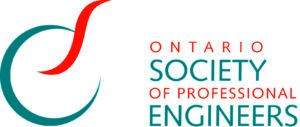How to Become a Licensed Sewage Hauler (Pumper) in Ontario
The Ontario Ministry of Transportation outlines the training requirements for drivers of waste transportation vehicles. Below are the steps involved in the process to become a licensed sewage hauler (or pumper).
For a more complete understanding of the onsite wastewater industry, it is recommended to take the Part 8 exam prep course and exam (which are the same requirements to become an installer).
Step 1: Find a location for the septage[1]
The first consideration will be finding an approved site to dump the septage after it has been pumped. If you would like to have your own site for dumping, this can take a long time (years); the other option can be to dump the septage at a municipal wastewater treatment plant, which would require their approval and paperwork indicating their approval.
Step 2: Obtain appropriate licensing and insurance, and a truck
You will need to obtain the applicable class of driver’s license (i.e., DZ, AZ) and insurance (pollution insurance for the truck and insurance in case of an on-site spillage/accident).
More information about these driving licenses is available on the Ministry of Transportation website.
Step 3: C12 Vac Truck Training
Haulers (or pumpers) are advised to take the C12 Vac Truck Training offered through OASIS (the Ontario Association of Sewage Industry Services). Biohazard training is strongly encouraged.
Step 4: CVOR and MECP registration
Companies will need to get a Commercial Vehicle Operators Registration (CVOR) number and apply for Environmental Compliance Approval through the Ministry of Environment, Conservation, and Parks (MECP).
Step 5: Keep records
Once fully licensed and with a dumping site in place, haulers (or pumpers) must keep records of the quantity and type of septage that they have been pumping, as well as the addresses of the sites.
[1] Septage is the term for sewage after it has been pumped.
Disclaimer:
The content of this communication is provided for informational purposes only. The substance of said content does not constitute legal or professional advice or practice and should not be construed as such. While every effort is made to ensure the accuracy of the information conveyed in this communication, the Ontario On-Site Wastewater Association (“OOWA”) does not warrant same. Any points of view or opinions expressed in this communication do not necessarily represent the official policies or positions of OOWA, its entities, agents, representatives, and/or any of its individual members. Readers of this communication should neither act nor rely upon any information contained herein, nor upon the content of any websites linked to or from this communication, especially for the purpose of any dispute, claim, action, demand, or proceeding, without the advice of professional legal counsel. OOWA does not accept liability with respect to any damages and/or causes of action resulting from reliance upon the information contained in this communication.



